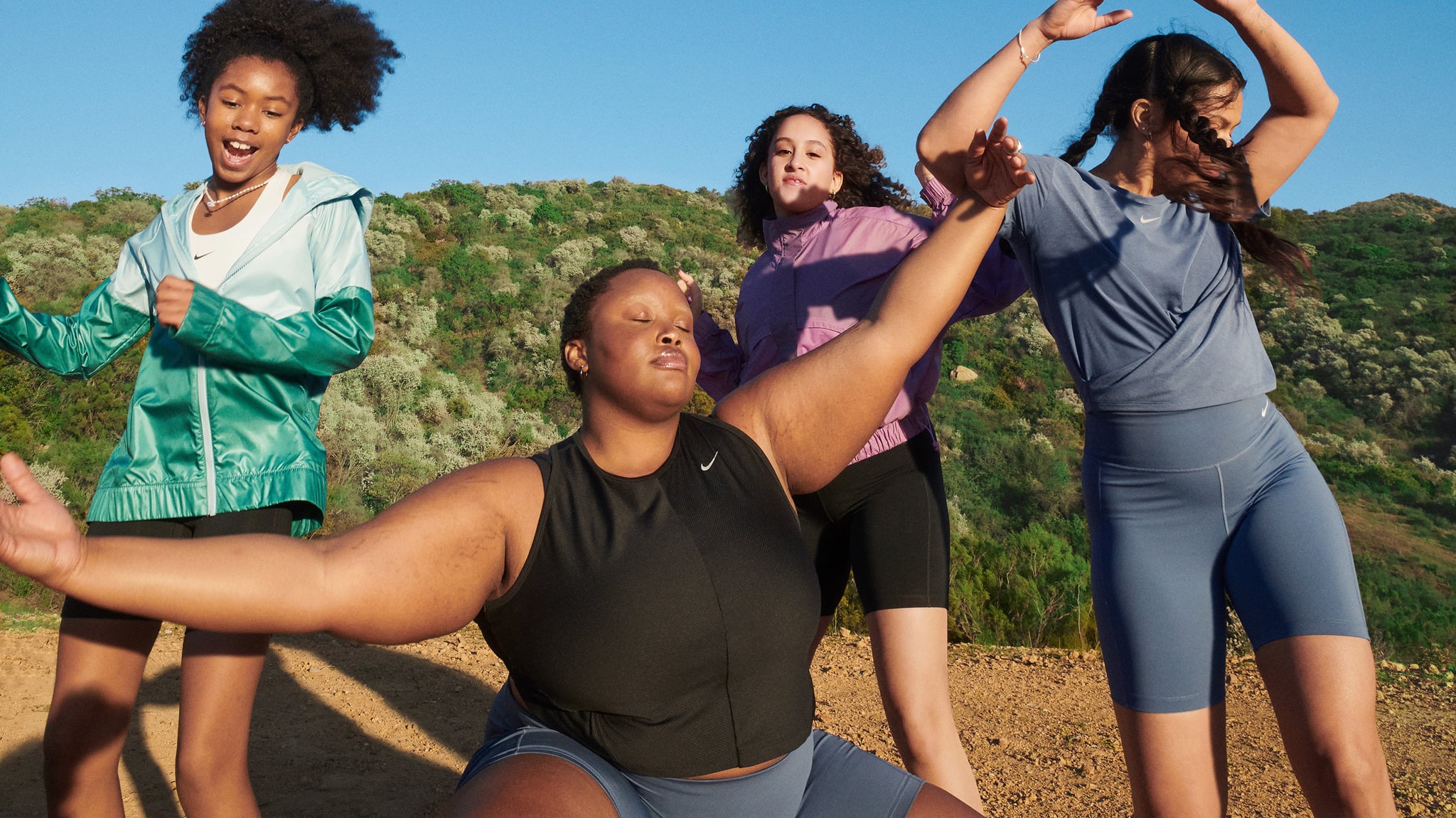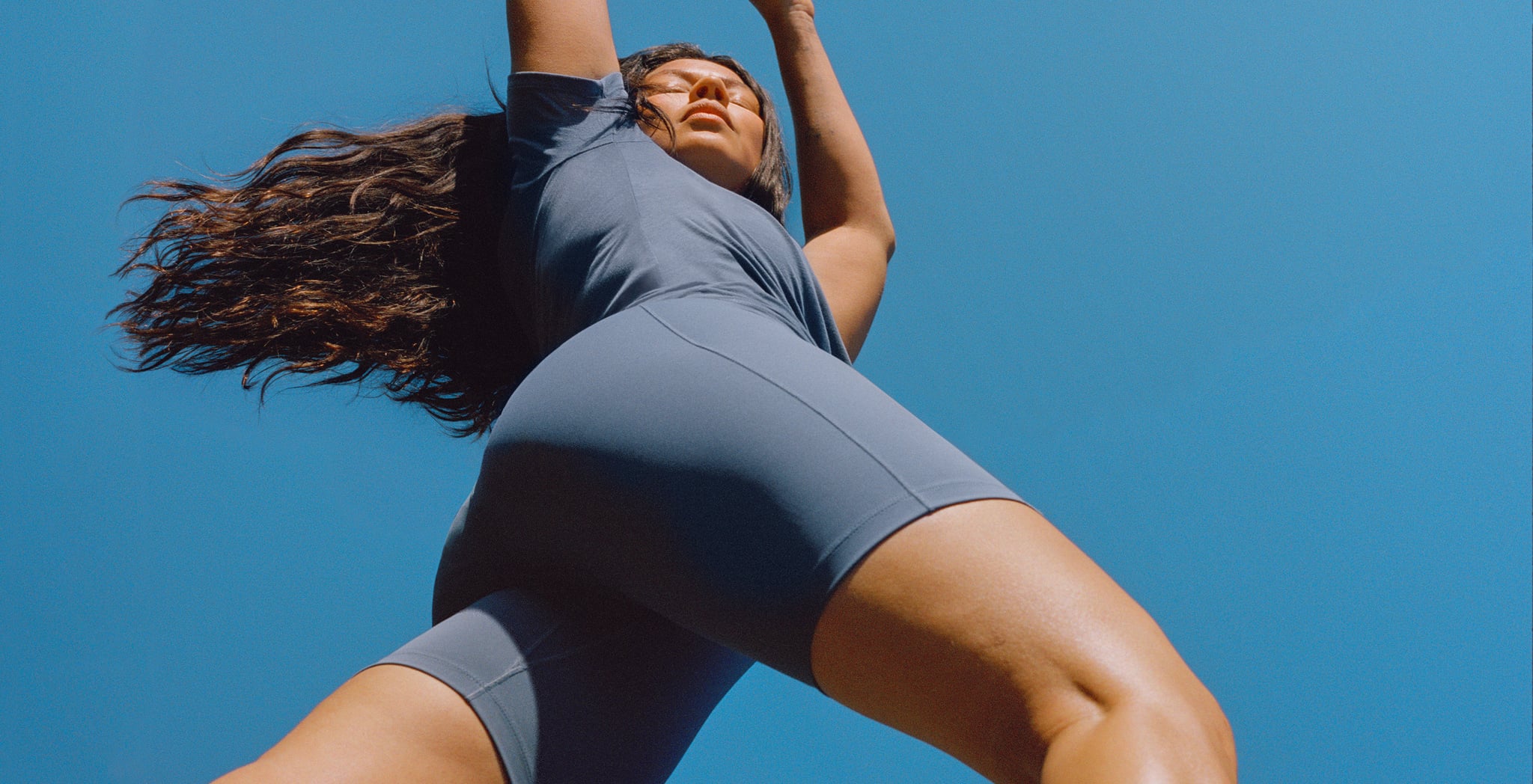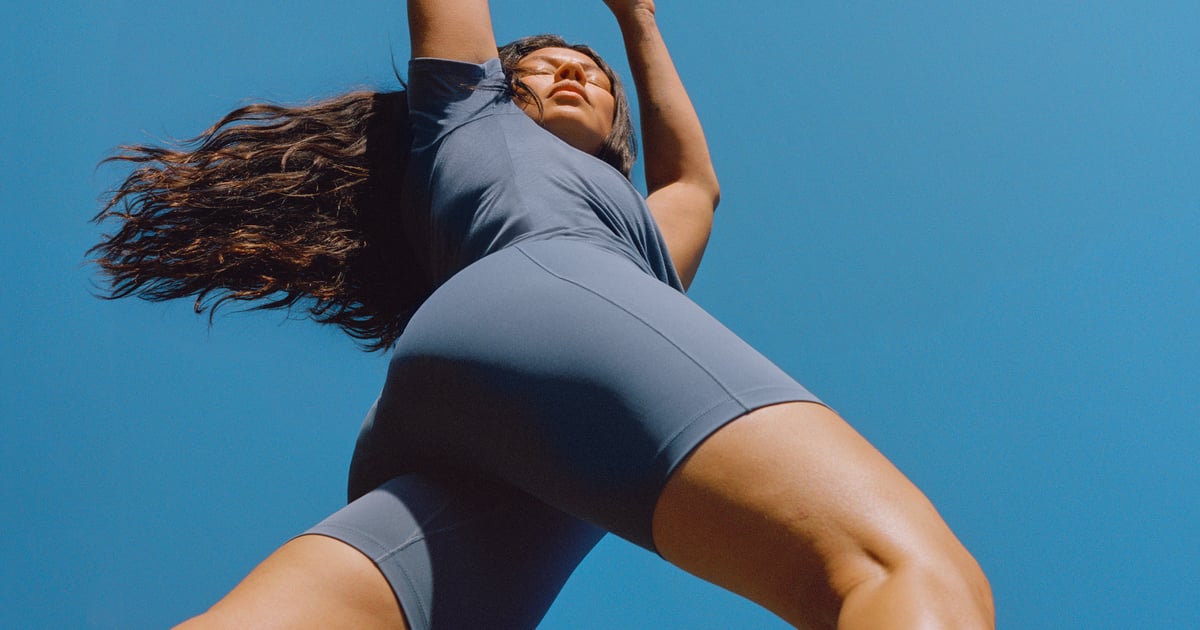
Sports matches, games, tournaments, and competitions stop for no one and nothing — not injury or illness, and certainly not periods.
Just because menstruating athletes triumph regardless doesn’t mean playing sports with a period is easy. From dealing with performance-dampening symptoms, like cramps or fatigue, to straight-up annoying ones, like bloating or rogue tampon strings, periods can absolutely affect your ability to remain focused and play at your best.
Nike can’t fix all of those issues for athletes or exercisers who menstruate, but it’s hoping to help with one thing: leaks.
“We really wanted to design for the body in motion and as a backup, so that people could continue to make sport a daily habit knowing that Nike’s got their back.”
The sportswear giant just announced its first-ever menstrual innovation, a lining material called Leak Protection: Period that will first appear in its Nike One Short ($45). It’s an ultrathin, absorbent liner that helps protect against period leaks, made of a “two-layer laminate gusset” that absorbs, wicks, and holds blood “with a membrane that acts as an anti-leakage barrier,” per a release from the brand.
This liner isn’t meant to replace your period underwear, tampon, pad, or menstrual cup, but instead act as a second line of defense against leaks when you’re moving. If you menstruate, you know that no single period product is foolproof; blood can find its way out of whatever you’re using, one way or another, especially when you’re playing sports or working out. But wearing a pad, a panty liner, or period underwear to stop leaks isn’t always possible or comfortable.
This proprietary material has been in the works since 2019 and started with something called the Teen Girl Insights Project, says Lisa Gibson, senior apparel innovation project manager for the Nike Advanced Innovation Collective.
“From that, we learned that by age 14, girls are dropping out of sport at twice the rate of boys. And by age 17, an age at which most have gone through puberty, 51 percent will have quit,” she tells POPSUGAR. “We know periods aren’t the only reason she drops out of sport, but it is a critical component . . . that fear of bleed-through is very real; it doesn’t just last when you’re a teenager, it really lasts your entire adventure with menstruation.”
Choosing between period products is deeply personal, and Nike didn’t want into that fight. “Our goal was to create a product that provided leak protection that can be worn alongside your preferred menstrual product of choice, whether that’s a pad, a tampon, or a cup, but without the added bulk,” Gibson says. “We really wanted to design for the body in motion and as a backup, so that people could continue to make sport a daily habit knowing that Nike’s got their back.”

Since 2019, Gibson and a team from the Nike Sports Research Lab have worked to design a material and then test it thoroughly, both with artificial menstruation — including a data-backed “flow rate” and “recipe” for synthetic blood that actually matches the viscosity of menstrual fluid — and thousands of hours of athlete testing.
The final product, offered in the Nike One Short, will be available to consumers starting in early April, with other garments hopefully on the horizon.
For now, the only other confirmed product featuring the new Leak Protection: Period technology is the athlete-favorite Nike Pro Short ($30) — but it’s only going to be available for elite footballers in the upcoming 2023 FIFA Women’s World Cup. As part of the kits for Nike’s 13 federations, the brand is providing athletes with this new technology in their uniform base layer. “We wanted to make sure that our footballers were focusing on their game, and not distracted by this worry of bleeding through,” Gibson says.
Other companies have previously released menstruation-focused products for working out, including period-focused brands like Ruby Love and sportswear brands like Adidas. But by adding this product to its lineup, Nike — one of the most valuable apparel brands in the world — is helping to normalize menstruation and reduce period stigma, which contributes to period poverty and negative public-health outcomes.
Battling leaks and reducing period stigma are steps in the right direction, but there’s a lot more to be done in terms of understanding menstruation and how it affects exercise performance, in particular. The research we do have, such as that published in the Journal of Women’s Health and Physical Therapy, acknowledges that “the menstrual cycle has unique physiological and psychological effects on athletic performance” and that hormone fluctuations and menstrual-cycle symptoms “may impact one’s ability to train and compete.” But beyond that, we’re largely in the dark. That’s why experts and athletes alike are calling for more research on menstruation in sports.
“Just from my personal experience, I think back to what this would have meant for me when I was a teenager, when I was 13 or 14, and how this really would have impacted my life in a very positive way,” Gibson says.
This visibility was top of mind when Nike began working on Leak Protection: Period. The innovation team likes to use code names for projects that are in the works because they often don’t know what the final name will be until it’s closer to market, Gibson says. “We were trying to come up with something a little bit more creative than ‘period short,’ and so several names were thrown onto the table. One of those was ‘TMI,’ for ‘too much information.’ We looked at each other, and we were like, ‘No. This is not TMI. This is FYI. This is for your information.'”
It stuck, Gibsons says, “and that code name really embodies the project team’s mission of creating a future where menstruation is celebrated and not shamed.”
